Basic Arithmetic Normal Addition & Subtraction Worksheets for Ages 6-7
6 filtered results
-
From - To
Enhance your child's math skills with our "Basic Arithmetic: Normal Addition & Subtraction Worksheets for Ages 6-7." These fun, engaging worksheets are designed to help young learners build a strong foundation in arithmetic. With a variety of exercises that focus on addition and subtraction, your child will develop essential problem-solving skills and confidence in their math abilities. Carefully crafted to align with educational standards, these worksheets make learning math enjoyable and effective. Perfect for use at home or in the classroom, they offer a practical resource for practice and improvement. Empower your child with the building blocks of math success today!
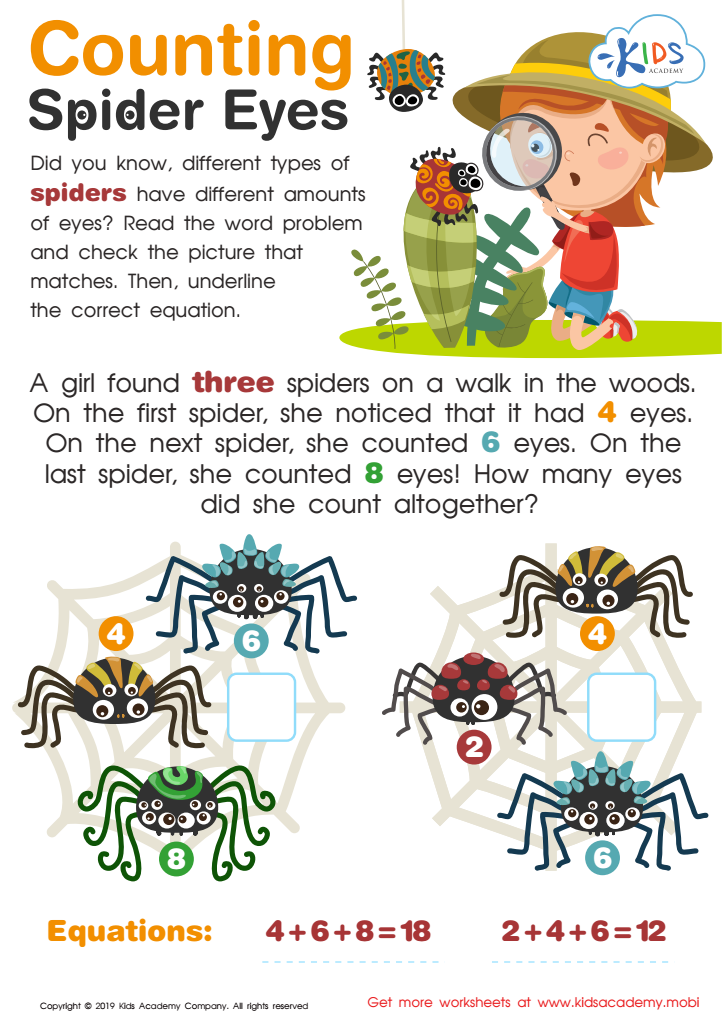

Counting Spider Eyes Worksheet
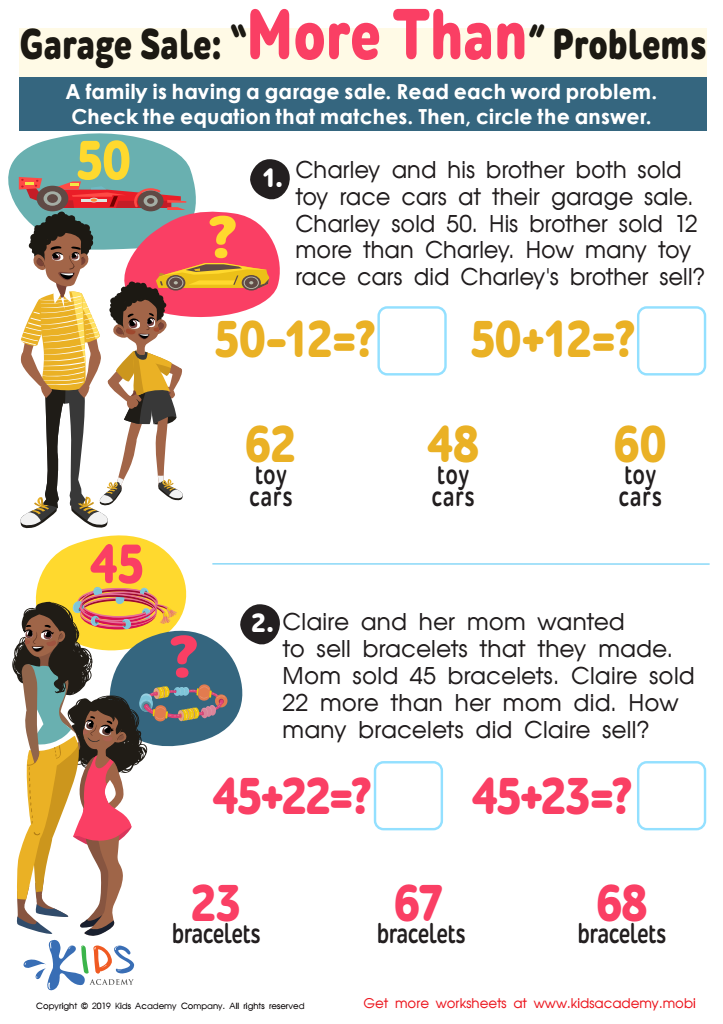

Garage Sale - More yhan Worksheet
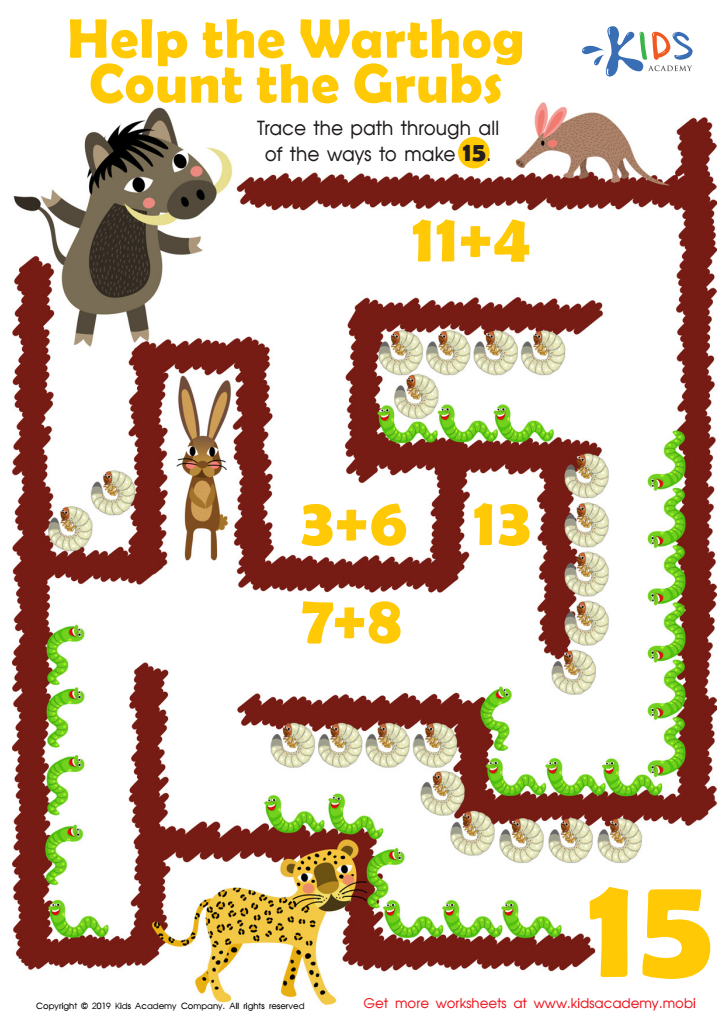

Help the Warthog Count the Grubs Worksheet
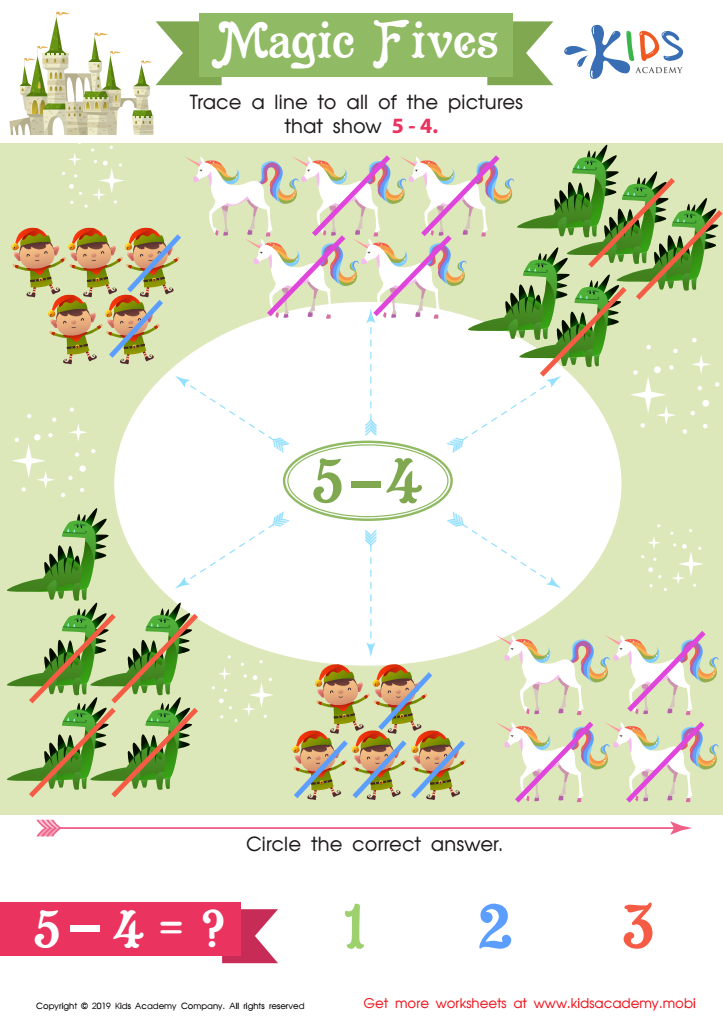

Magic Fives Worksheet
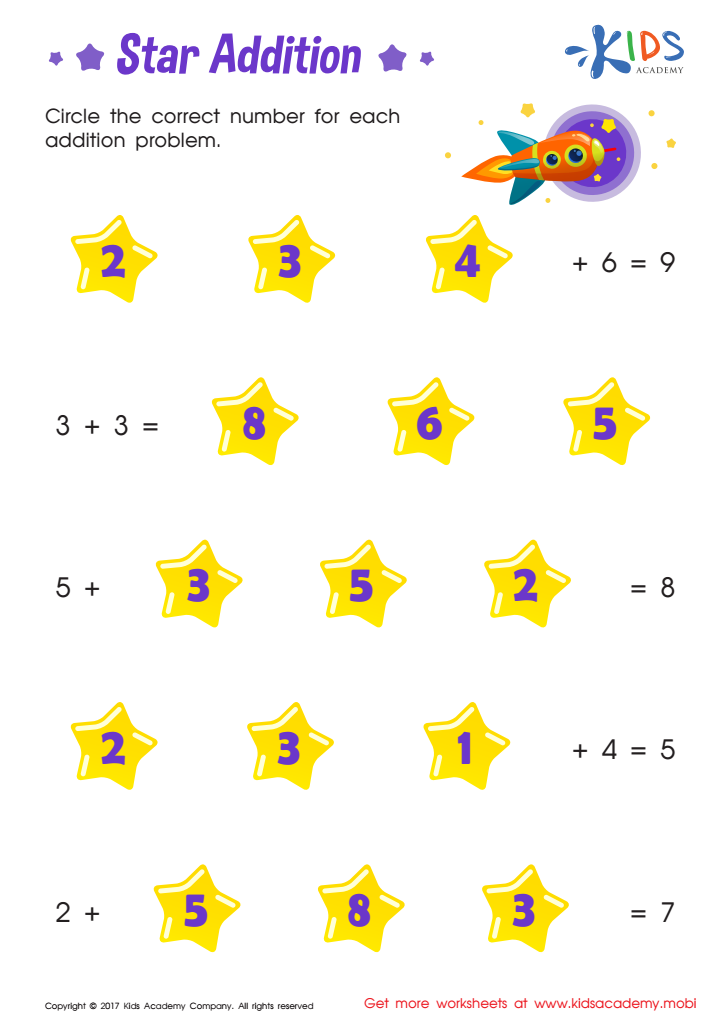

Star Addition Printable
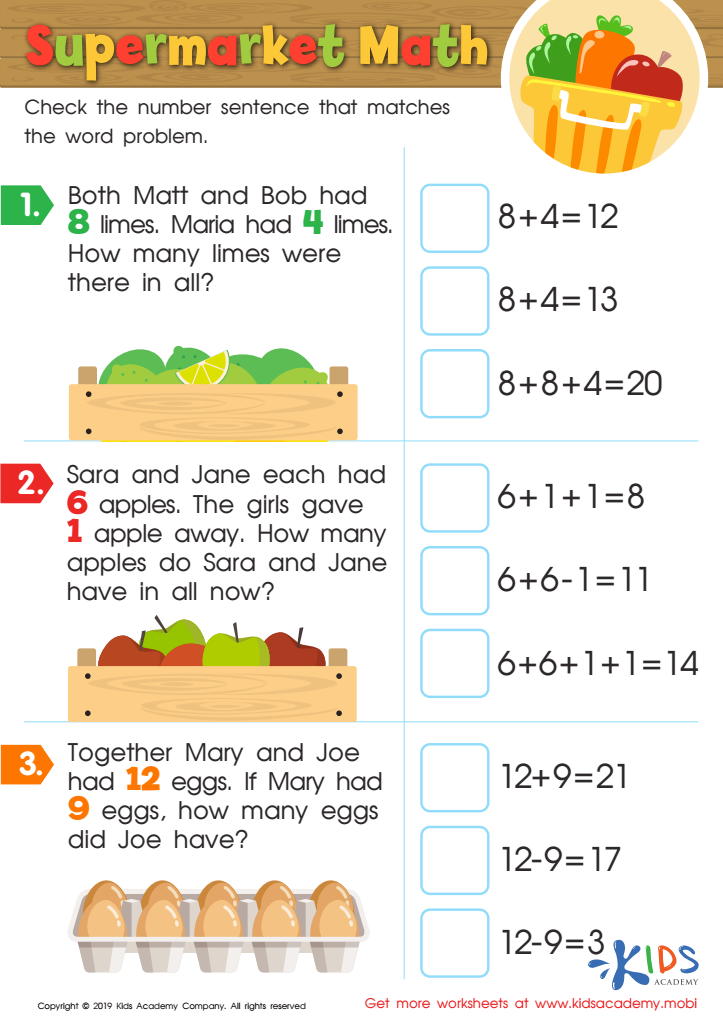

Supermarket Math Worksheet
Parents and teachers should prioritize helping children ages 6-7 master basic arithmetic, including normal addition and subtraction, as these skills are foundational for future mathematical learning and everyday problem-solving. At this developmental stage, children transition from concrete to more abstract thinking, making it the perfect time to reinforce these essential math concepts.
Basic arithmetic aids in developing cognitive abilities such as logical thinking, pattern recognition, and memory. Understanding simple operations like addition and subtraction enhances children's ability to tackle more complex math problems later in their educational journey. These skills are also imperative for understanding the value of money, telling time, and other practical, real-world situations they encounter daily.
Moreover, early competence in math fosters a positive attitude and confidence towards the subject, reducing anxiety and apprehension that may come with math challenges in higher grades. Teachers can create engaging and interactive lessons, while parents can encourage fun and practical experiences such as baking or shopping, where these calculations are necessary.
In summary, ensuring children grasp basic addition and subtraction by ages 6-7 sets a strong foundation for academic succes and practical life skills, fostering a lifetime of learning and problem-solving capabilities.
 Assign to My Students
Assign to My Students



















